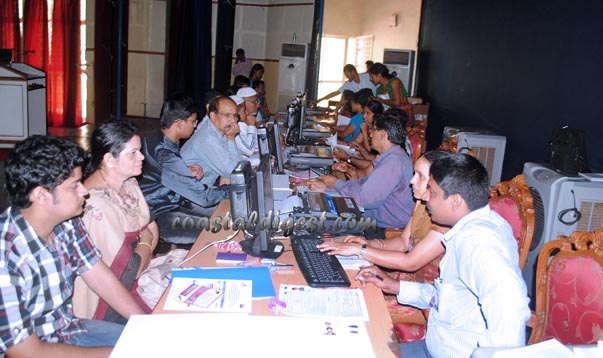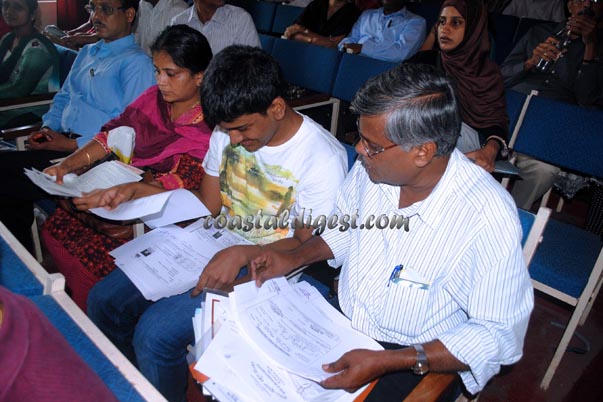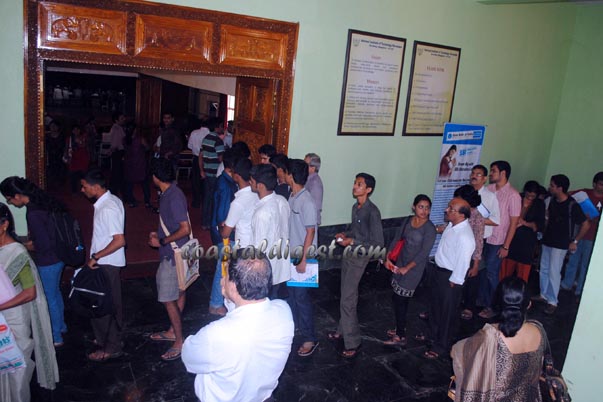Bengaluru, Apr 13: Karnataka chief minister B S Yediyurappa on Monday said the COVID-19 situation has thrown the state into a deep financial trouble and there is a need to to find ways to overcome the present crisis, as he announced certain measures aimed at resource mobalisation.
He said the state government was awaiting guidelines from the Centre regarding the implementation of lockdown during the next two weeks, and noted that discussions were on regarding relaxations on the sale of liquor and the decision will be taken after April 14.
Yediyurappa on Monday held a meeting with officials of various departments along with his cabinet colleagues and the chief secretary.
"The possible situation once the lockdown is released, was widely discussed in the meeting. Discussion was also held about the financial situation of the state government and how to mobilise resources. Many suggestions were given and it was decided to implement those suggestions," the Chief Minister said.
Speaking to reporters after the meeting, he said, "...the COVID-19 situation has thrown our state into deep financial trouble and there is a need to to find ways to overcome present financial crisis."
Yediyurappa said it was decided to speed up the disposal of cases related to regularisation of unauthorised constructions which are pending before the High Court and Supreme Court, during the meeting.
"If the court decides the matter, thousands of people who own unauthorised houses will be relieved," he said, adding that this will also help government in mobilising resources for fund starved development works.
He said in addition to this the government is planning to auction more than 12,000 corner sites lying idle in Bengaluru, and it was also decided to allow auction of corner and vacant sites in respective urban development authorities across the state.
"By auction of corner sites in Bengaluru, we plan to mobalise about Rs 14,000-15,000 crore. BDA is preparing for it, only if we get good market value we will sell or else no," he added.
It was also decided to amend the law governing permission to allow sites in private and co-operative housing societies, the Chief Minister further said, adding that hundreds of societies were waiting for approval from government for releasing the sites.
Yediyurappa said it was decided to use Rs 1,000 crore available in Rajiv Gandhi Health University to upgrade medical college hospitals.
It was also decided to distribute free milk to slums and poor for one more week, the Chief Minister said while appealing to sugar factory owners to clear the pending payment to the tune of Rs 2,834 crore to farmers in 11 districts.
The government has also released Rs 45 crore compensation for the loss of paddy crop in Raichur and Koppal District due to hailstorm based on report submitted by Deputy Commissioners, he added.
Responding to a question, Yediyurappa said, still no guidelines have come from the Centre on lockdown implementation for next two weeks, we are waiting for it.
Once the guidelines come it will help us to speed up the process of lockdown, and also relaxations if any.
Asked what plans does the government have if states are asked to decide on relaxation, he said, already Prime Minister has said that guidelines will be given, if they say on certain matters states can take decision, we will decide on what needs to be done to improve the state's economy.
To a question on relaxation on sale of liquor through Mysore Sales International Ltd (MSIL) outlets, he said, discussions are on, after April 14, we will take decision in this regard.








Comments
Add new comment